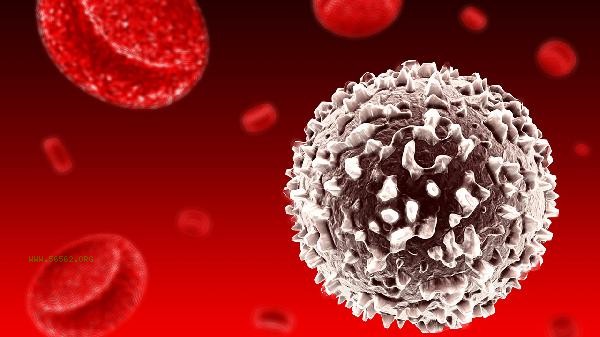Elevated white blood cells in the blood may be caused by infections, inflammatory reactions, stress states, blood system diseases, or drug factors. Elevated white blood cell count is a defensive response of the body to abnormal conditions, which requires comprehensive judgment based on clinical symptoms and other examinations.

1. Infection factors:
Bacterial infections are the most common cause, such as respiratory infections caused by Streptococcus pneumoniae and urinary system infections caused by Escherichia coli. In the early stages of viral infection, there may also be a brief increase in white blood cells, but it is usually accompanied by an increase in the proportion of lymphocytes. Parasitic infections such as malaria and ascariasis can stimulate an increase in eosinophils.
2. Inflammatory response:
Non infectious inflammations such as rheumatoid arthritis, systemic lupus erythematosus, and other autoimmune diseases can lead to an increase in neutrophils. After tissue damage such as burns, trauma, or surgery, the body releases inflammatory factors to stimulate bone marrow hematopoietic function, causing reactive leukocytosis.
3. Stress state:

Physiological stress such as intense exercise, emotional tension, or pregnancy can temporarily increase white blood cells. This change usually returns to normal within 24 hours and belongs to the normal stress response mechanism of the body. 4. Hematological disorders: Bone marrow proliferative diseases such as leukemia can cause abnormal increase in white blood cells, often accompanied by the appearance of immature cells. Polycythemia vera, myelofibrosis, and other conditions can also lead to an increase in white blood cell count, which requires further differentiation through bone marrow aspiration.
5. Drug effects:
Corticosteroid drugs such as prednisone can promote the release of white blood cells from the bone marrow. Adrenergic drugs temporarily increase the count by mobilizing peripheral pool white blood cells. Certain antibiotics such as cephalosporins may also cause drug reactive leukocytosis.
found that elevated white blood cells should be avoided through vigorous exercise and high-fat diet, and adequate rest should be maintained. Suggest rechecking the blood routine to observe dynamic changes. If there are persistent abnormalities, it is necessary to complete tests such as C-reactive protein, erythrocyte sedimentation rate, and peripheral blood smear. Daily attention should be paid to recording changes in body temperature and discomfort symptoms, and women should avoid menstrual check ups. During the acute infection period, it is recommended to drink more water and supplement with appropriate amounts of vitamin C and protein. However, patients with hematological diseases should strictly follow the doctor's advice on diet.









Comments (0)
Leave a Comment
No comments yet
Be the first to share your thoughts!